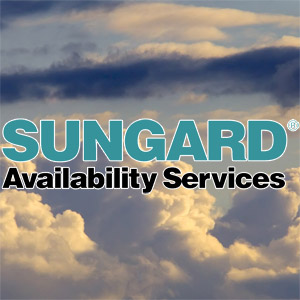 NEWS
NEWS
 NEWS
NEWS
 NEWS
NEWS
![]() We all take advantage of cloud computing regardless of whether we realize it or not. Buying stuff on eBay, browsing through Amazon, watching our favorite online videos, all of these take place in the cloud. In order to improve cloud computing as we know it today, partnerships have established with different academia for its research and development.
We all take advantage of cloud computing regardless of whether we realize it or not. Buying stuff on eBay, browsing through Amazon, watching our favorite online videos, all of these take place in the cloud. In order to improve cloud computing as we know it today, partnerships have established with different academia for its research and development.
SunGard Availability Services today announced a partnership with the University of Texas (Austin) to create a Cloud Computing Research Center. Within the partnership, both parties will identify relevant and unsolved research problems in cloud computing, and then pursue targeted research initiatives to solve these problems and commercialize them accordingly.
“The University of Texas attracts world-renown faculty and students experienced in distributed and high-performance computing, making the school an ideal partner for this initiative,” said Indu Kodukula, executive vice president and chief technology officer at SunGard Availability Services. “SunGard looks forward to engaging with UT educators and the next generation of researchers to solve the difficult IT problems we face in an accelerating market. We also expect the discoveries made will help shape the future of cloud computing.”
The first projects will involve some of the core problems in today’s cloud computing landscape. These solutions are believed to greatly impact mobile computing, networking, verification and fraud protection, encryption, and large-scale distributed processing. The Center will also focus on developing new approaches to make data transfers across the cloud and the Internet safer, as well as explore emerging technologies that may greatly benefit massive infrastructures.
“Partnering with an industry and cloud computing leader like SunGard Availability Services allows us to conduct research that can truly further the state of the art,” said Bruce Porter, Chair and professor of Computer Science at UT Austin. “Many of the principles of distributed computing are eminently applicable to cloud computing and we appreciate that SunGard chose to partner with us in this endeavor; this decision affirms our deep roots and leadership in the areas of systems and distributed computing.”
SunGard and UT Austin have created an executive committee composed of two UT Austin faculty (Professor Bruce Porter and Professor Keshav Pingali) and two SunGard executives (Kodukula and Chandler Vaughn, vice president, product development) to guide the overall research program at the Cloud Computing Research Center. One of the first projects under consideration is the development of an Exabyte-scale storage cloud building on the Depot research led by Professors Mike Walfish, Mike Dahlin and Lorenzo Alvisi.
Other partnerships established with an academia include that of Indiana University and Penguin Computing. The partnership seeks to offer US researchers access to powerful shared computing resources in a secure environment or cloud computing. It lets individuals and organization share the resources of large computing systems without individually purchasing and maintaining the costly equipment.
“This public/private collaboration demonstrates how technology companies are working together with academia to foster cost-effective innovation and provide access to world-class systems,” said Charles Wuischpard, president and CEO of Penguin Computing. “The systems we provide are set up for ease-of-use with the same configurations as existing government supercomputers and helps address the challenge of providing the science and research community with easy cost-effective access to needed compute resources. We believe this specialized cloud computing model will help accelerate needed research to enable U.S. competitiveness in science and engineering.”
There’s also the University of California, Santa Barbara announcing a funding from Grand Challenge Explorations by Bill and Melinda Gates Foundation, to help researchers worldwide to test unorthodox ideas that address persistent health and development challenges. The O’Sullivan Foundation also granted $5 million to Khan Academy to hasten the advancement and deployment of the non-profit’s innovative method to education, which has already been in schools throughout California and the United States.
THANK YOU